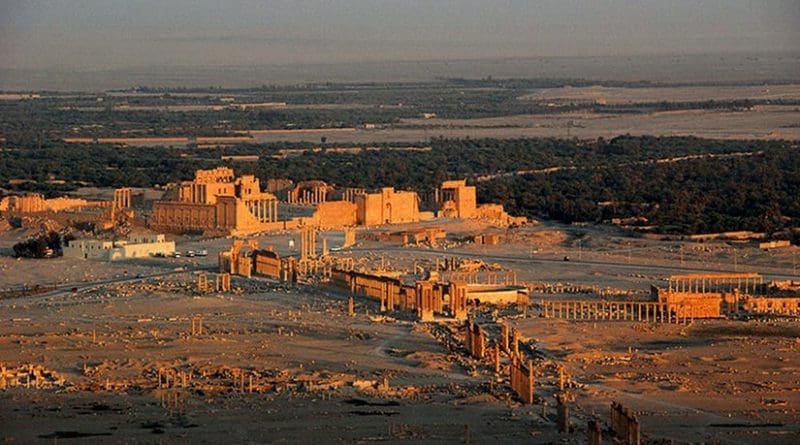Aleppo Liberated, Palmyra Enslaved Again – OpEd
The US, with its characteristic hypocrisy, has been at great pains over the liberation of Aleppo from the clutches of extremist jihadists (from over three dozen countries) and, yet, has demonstrated hardly any grief over the ISIS takeover of the ancient city of Palmyra, as if there is a grain of truth to the suspicion in Damascus, Moscow, and Tehran, that US deliberately turned a blind eye to ISIS’s assault on Palmyra for all the obvious reasons, i.e., continuing with the “radical Islamic card” against its enemies.
It is therefore with a tinge of humor when interpreting the US ambassador to UN’s grandstanding, asking the Syrian government and its allies if they are “really incapable of shame?” Perhaps the real question is if the US is really capable of accepting defeat? After all, the US’ investment on the Syrian rebels, many of whom are al-Qaeda affiliates, has come to naught, But, the game is not over and the Palmyra tragedy is indicative of a new chapter in the Syrian conflict that has featured strange bedfellows.
In Aleppo, thousands of residents have been celebrating the liberation of their city in the broken streets of this great historic city, but one would not know that by watching CNN and other US networks that have toed the official line by reporting, without any proof, of mass killings by the government forces.
The US propaganda against Syria is in full force and plays a major role in rationalizing US’ ‘game of strategy’ in the region, which has implicated the US in, among other things, complicity with the Saudi mayhem in Yemen, decried by the UN and rights organizations, although not the US and its UN representatives, such as ambassador Samantha Power, who has made a mockery of her human rights pretensions by failing to as much as raising an eye brow at the Saudis’ relentless destruction of hospitals, schools, and, indeed, the whole civilian infrastructure of poor Yemen, with the US and UK-manufactured bombs.
What about Yemen, someone at the Security Council should have had the courage to throw at ambassador Power when she took the moral high ground and criticized the Syrians and others, when what she should have done was to congratulate them for a successful campaign to restore peace in Aleppo and get rid of foreign fighters who have wreaked havoc there for the past four and a half years.
Certainly, one can only hope that the incoming Trump administration would keep the campaign pledges to refrain from engaging in regime change and prioritize fighting the menace of ISIS, which has spread to so many countries like a growing tumor.
Obama, who turned a blind eye to ISIS’s takeover of Mosul two years ago, has now done it again in Palmyra, thus leaving a highly undesirable legacy, call it unfinished project, for his successor, who must choose between continuity and discontinuity in US’ foreign policy. Trump’s opponents have already begun their efforts to weaken his hands by their insinuations of Trump-Russia connection, hoping that this will act as a speed bump on Trump’s desire to normalize relations with Moscow.
There is, of course, nothing anti-American to pursue this objective with respect to a country that matches US in nuclear muscle and can be a partner in global crisis-management as seen in the case of Iran nuclear negotiations.
Trump can prioritize the American national interests by putting a lead on NATO’s aggressive anti-Russian posture, which has resulted in Russia’s encirclement by NATO forces, despite the earlier American pledges of not militarizing the former parts of Soviet empire in Eastern Europe. But, in all likelihood, Trump the president will be overwhelmed by the weight of military institutions and vested interests that include Israel, which has been content in seeing Muslims fighting Muslims along sectarian lines while it continues with its land grab in the occupied territories.
In other words, one must not vest too much hope in Trump’s ability to introduce radical changes in the familiar pattern of US foreign policy conduct, one reason being that his own “make America great again” runs parallel to the neo-imperial pattern of the post-WWII era. Making America great again along Wilsonian lines is certainly not the Trump way.

